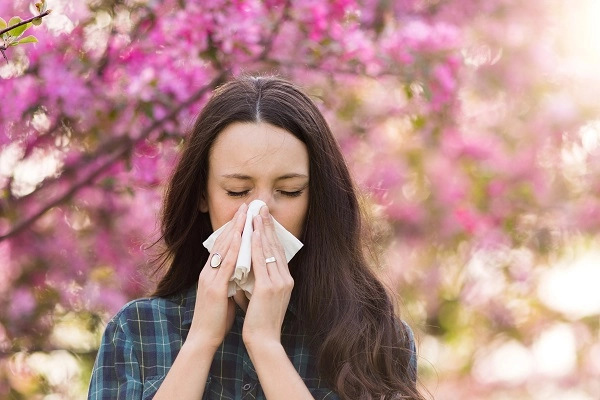Thriving during allergy season

The weather is warming and with this comes both the beauty of spring blossoms, and the misery of spring allergies — runny noses, itchy eyes and sneezing. Allergies are one of the most common chronic conditions worldwide: one in six Americans suffer from seasonal outdoor allergies.
Spring allergies pose an annual dilemma. Longer, warmer days make outdoor activity more appealing. Moving around outside is great for physical health. But inhaling pollen from trees, grass or other irritants can lead to varying levels of discomfort.
Getting beyond survival
For many people, being outdoors in springtime is all about surviving. But it doesn’t have to be that way. Thriving in spring is possible — it requires knowing your triggers, understanding the environment, following practical tips to lower exposure and using appropriate treatment (when necessary).
- Know your triggers
- If you have seasonal allergies, you’re probably allergic to pollen from trees, grass or weeds.
- Grass is the major allergen in Oregon and syncs directly with spring (April to July).
- Allergies associated with tree pollen run from January to March; weed pollen appears in the fall.
- Understand the environment
- Track pollen levels where you live. Take advantage of when levels are lower.
- Some outdoor areas have less pollen. Consider a daytrip to the beach for a brief escape — or head to the local high school track for walks rather than the woods.
- Everyday tips
- Keep car and home windows closed.
- Use air conditioning and change air filters.
- Schedule outdoor activities for early morning or after a light rain, when conditions are damp.
- Upon returning from outside, always wash your face or take a quick shower and change your clothes.
- If weather is warm and breezy, stay inside.
- Allergy treatment
- Antihistamines are readily available to combat various allergy symptoms. Find what works for you, but remember some options can cause drowsiness.
- Saline eye drops help relieve itchy eyes.
- Nasal irrigation bottles rinse out your nose and can prevent an allergic reaction.
Allergies are an immune system response that happens after you come into contact with enough allergens. Exposures stack up like Legos. Eventually there’s a tipping point when the allergic reaction happens. Following the above tips can help you avoid the tipping point — and allow you to get beyond surviving.
Doing this effectively requires you truly get to know yourself. Make this year about doing just that. Take note of your surroundings and recent activities when your allergies kick up. Once you know your triggers, you can get better at avoiding them and get on with thriving in spring.
Will the pandemic impact allergies?
Your trusty facemask provides the biggest impact of the lockdown. As excited as you’ll be to take it off outdoors, masks can reduce pollen intake and help avoid contact with allergens. More time spent inside will not impact allergy symptoms. If you’re allergic to grass pollen, your reaction will be the same. Once enough contact occurs, the same allergic reaction will happen — though you may perceive it differently, if you haven’t experienced it in a long time.
Remember to monitor your symptoms and exposure — they’re your ultimate personal guides to thriving this allergy season!
Additional resources
Learn more about seasonal allergies and how to cope with them: